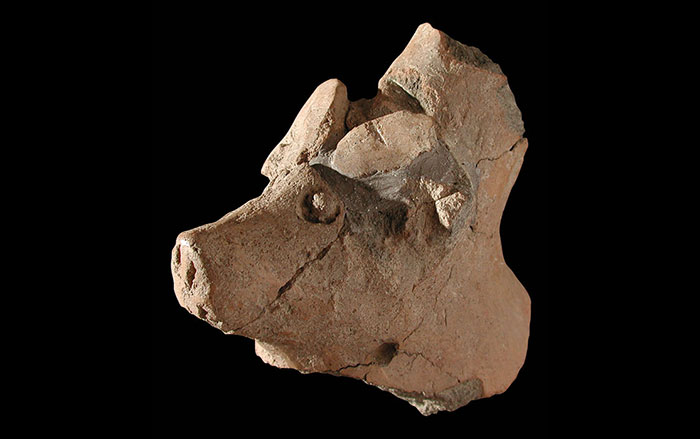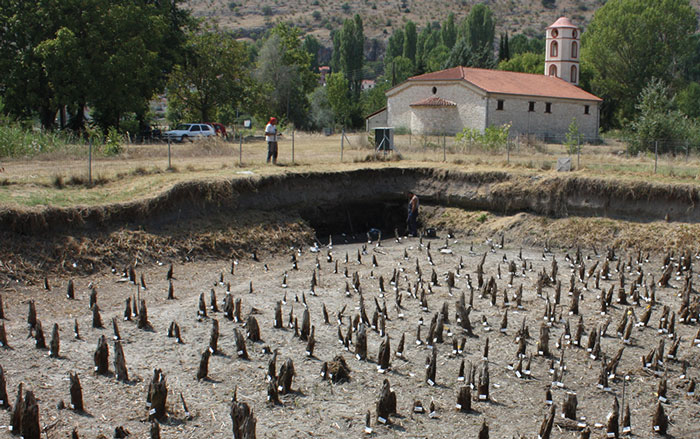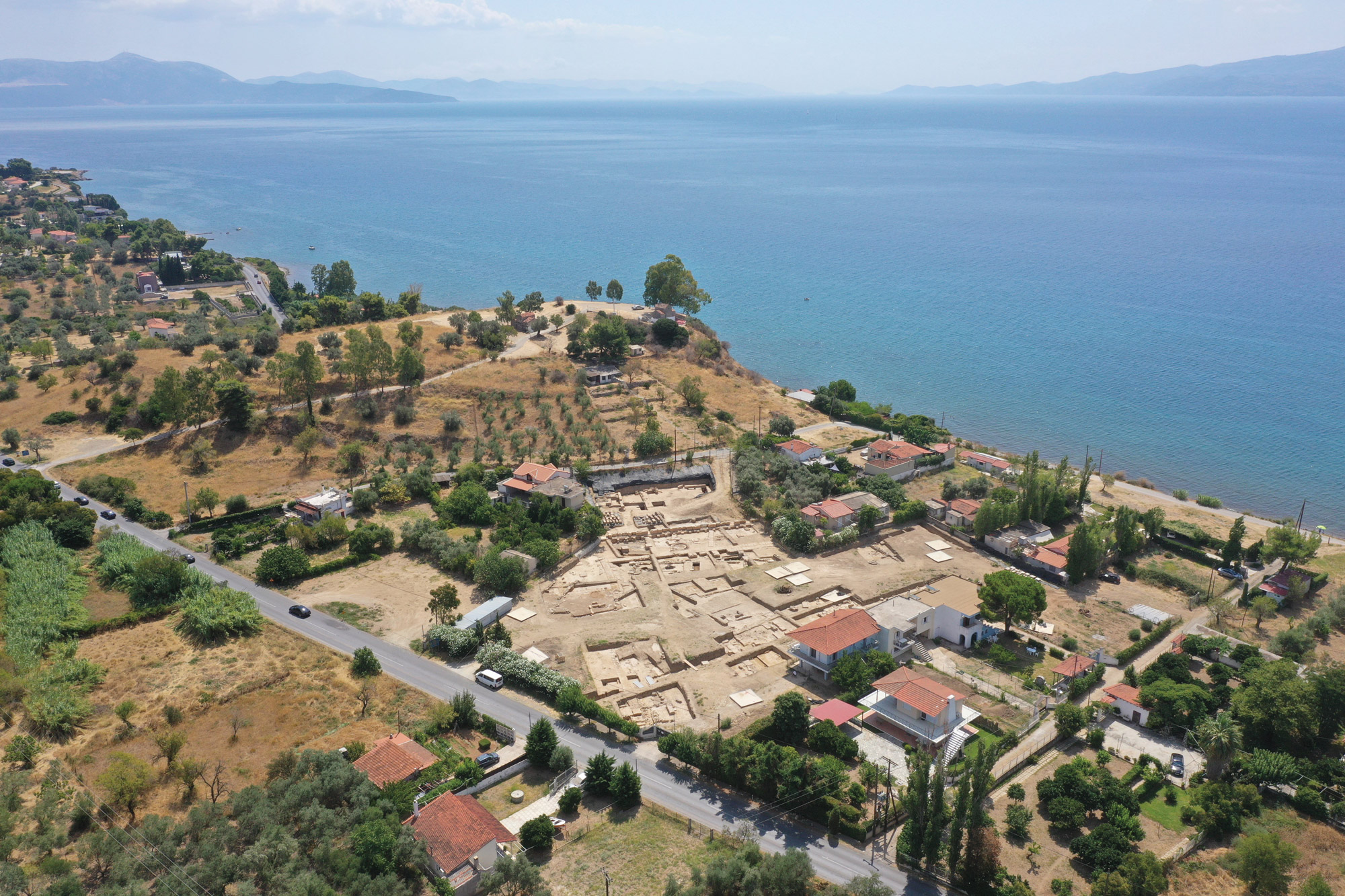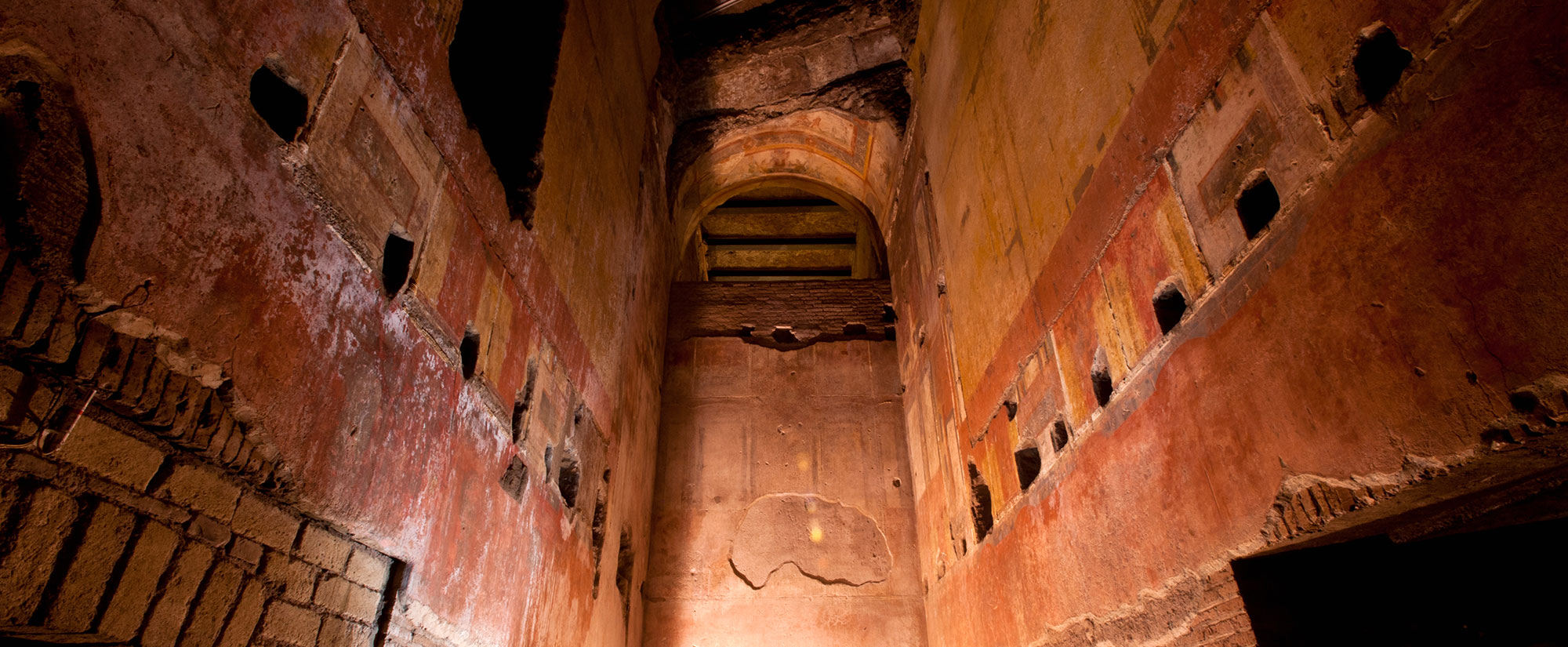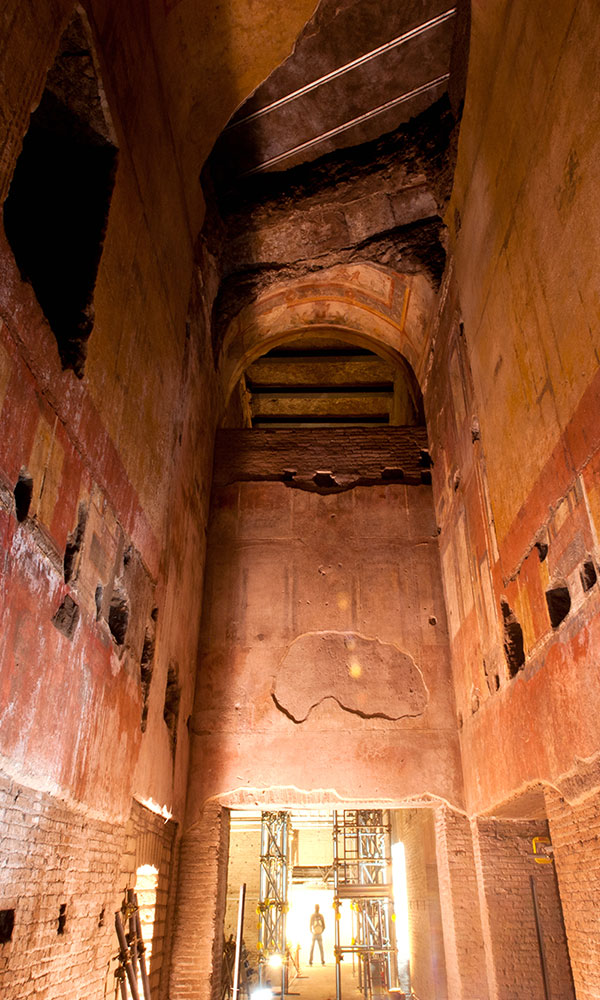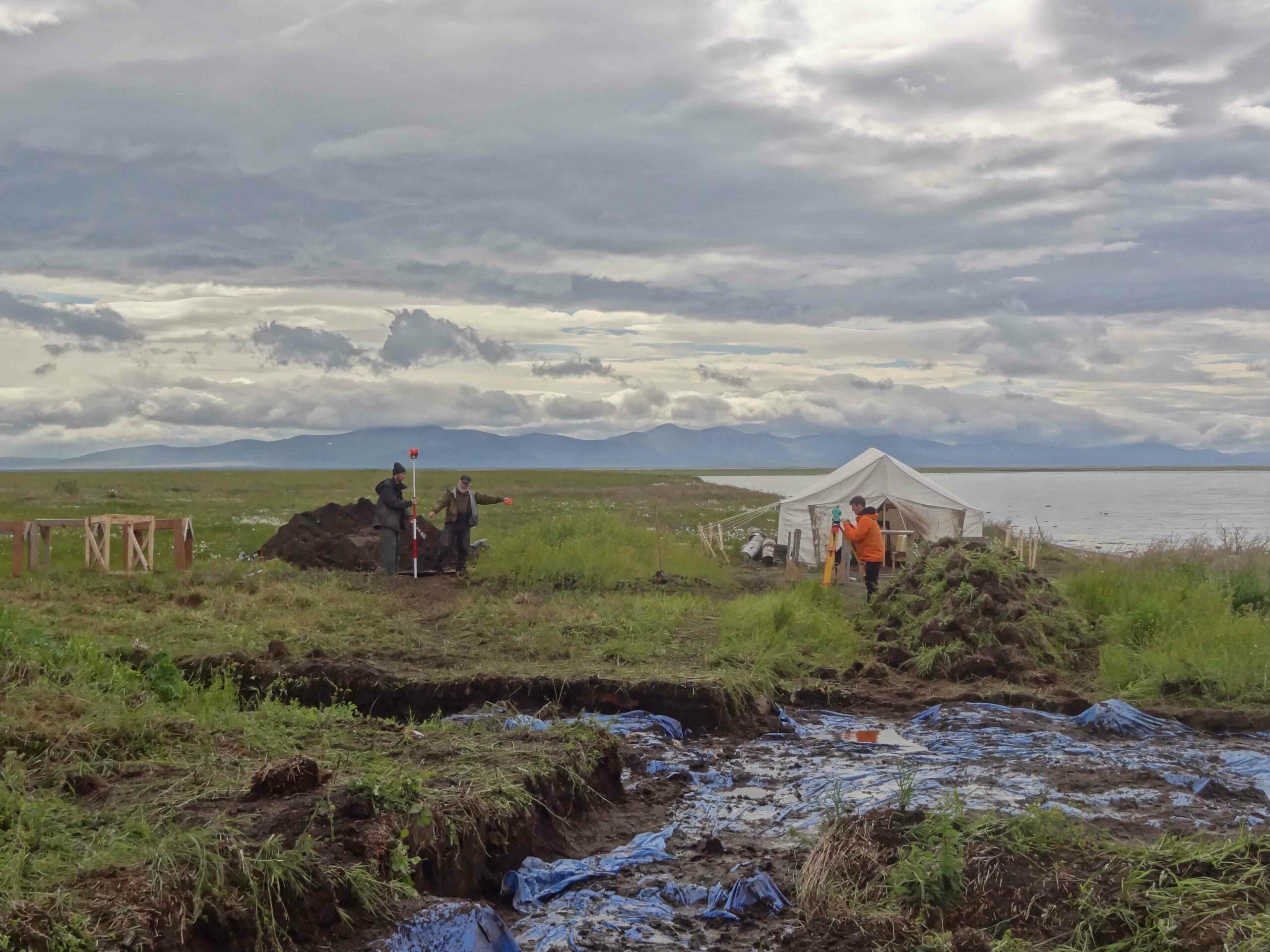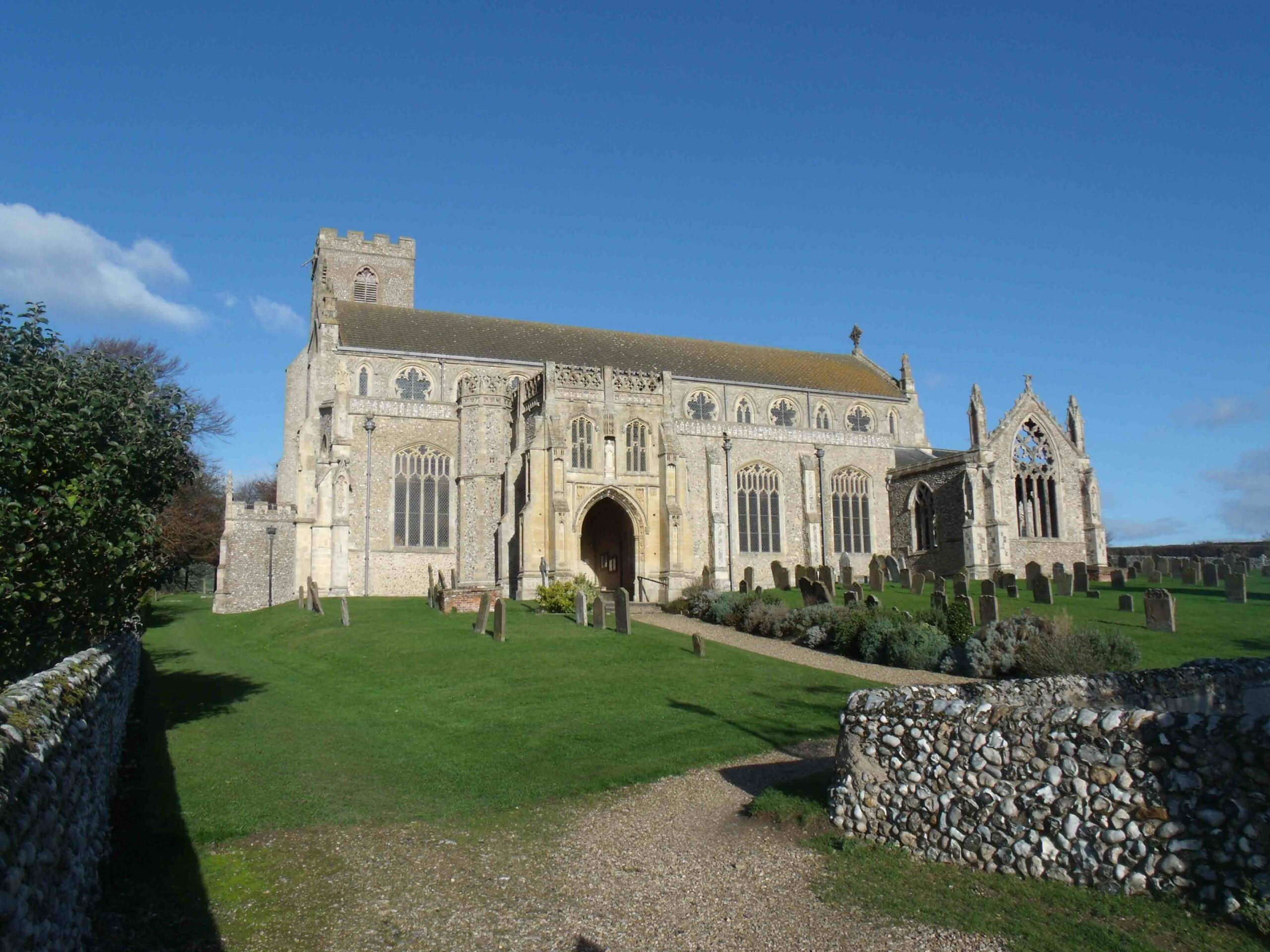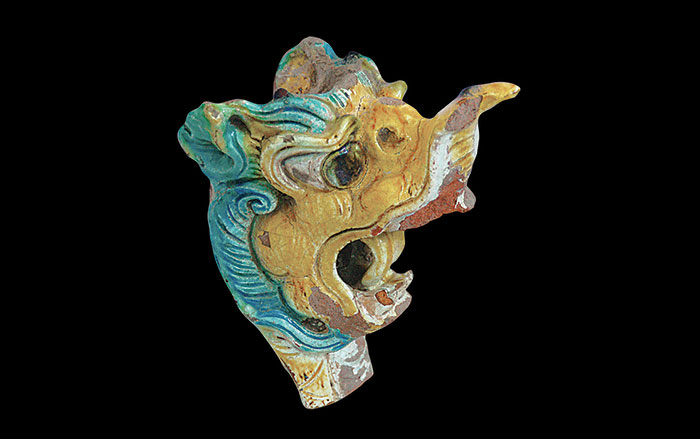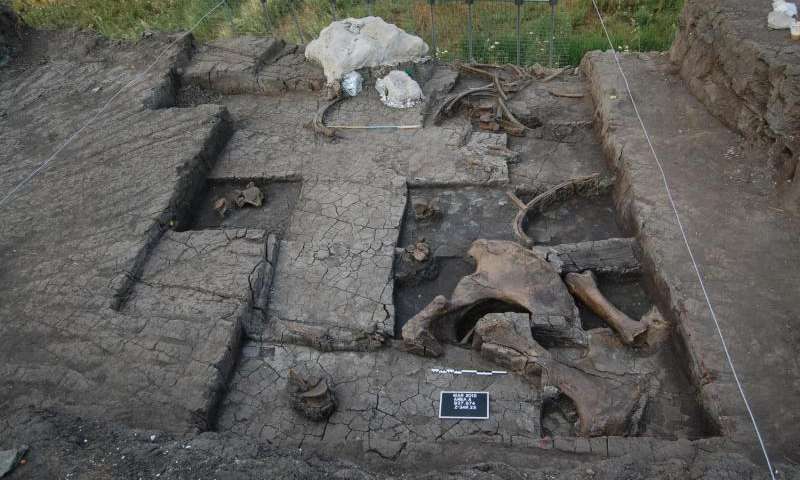
MEGALOPOLIS, GREECE—Researchers have uncovered the nearly complete skeleton of an elephant and a collection of stone tools at the Lower Paleolithic site known as Marathousa 1, reports PhysOrg. Some of the elephant’s bones bear distinctive cut marks that indicate the animal was butchered by the region’s inhabitants between 300,000 and 600,000 years ago. Marathousa 1 is one of the oldest archaeological sites in Greece and the discovery marks it as “the only site in the Balkans where we have evidence of an elephant being butchered in the early Paleolithic," according to Katerina Harvati of the Senckenberg Center for Human Evolution and Palaeoenvironment (HEP) at the University of Tübingen, who participated in the excavation. To read about the use of elephants in ancient Mediterranean warfare, go to “Clash of the War Elephants.”


